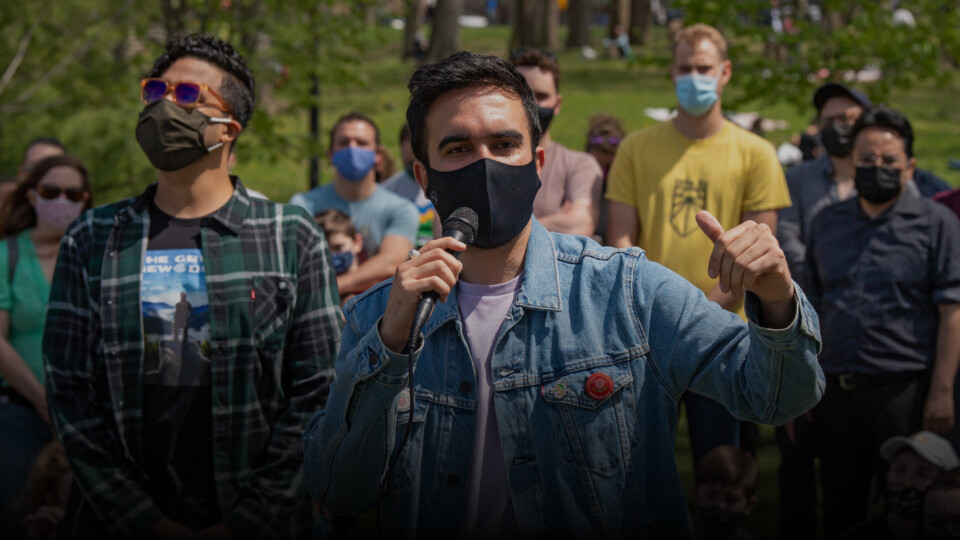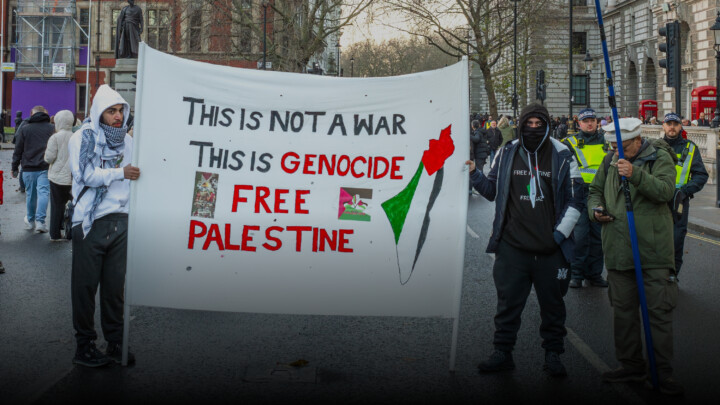|
New York City’s 2025 mayoral race has taken an unprecedented turn. Zohran Mamdani, a 33-year-old Democratic Socialist assemblyman, has surged to second place in recent polling, trailing only former Governor Andrew Cuomo. His rapid rise would be remarkable in any major American city. But in New York — home to nearly 1 million Jewish residents, the largest Jewish population outside of Israel — Mamdani’s candidacy represents something far more serious than a typical progressive upset.
The assemblyman brings a record that directly challenges fundamental assumptions about security and belonging in America’s most Jewish city. Mamdani has publicly championed the Boycott, Divestment, and Sanctions (BDS) movement against Israel. For Jewish communities worldwide, BDS carries implications well beyond economic pressure. The movement seeks to isolate Israel completely, cutting off academic exchanges, cultural partnerships, and business relationships. BDS aims to delegitimize Israel’s very existence as a Jewish state. Its leaders have explicitly rejected the two-state solution. They demand the “right of return” for millions of Palestinian descendants; a demographic strategy designed to end Jewish majority rule. For most Jews, it’s a blueprint for erasing Jewish self-determination altogether.
And this is where Mamdani steps in, not from the margins, but as a clear and unapologetic champion of the cause. When directly asked, he has refused to affirm Israel’s right to exist as a Jewish state. Most provocatively, he has called for “globalizing the intifada”. To the uninitiated, it may sound like a vague call for resistance. But for anyone familiar with its history, the term evokes suicide bombings on buses, nail bombs in cafés, and stabbings in city streets. The Second Intifada alone claimed thousands of Israeli lives, most of them civilians, and left many more maimed, orphaned, or permanently scarred. To call for that model of violence to be “globalized” is not a cry for justice. It reframes terrorism as resistance and extends an open invitation for others to do the same.
This isn’t incidental to Mamdani’s worldview. His positions on Israel are inseparable from his broader socialist ideology. They emerge from a political tradition that, time and again, has singled out Jews and the Jewish state as uniquely problematic within its framework of power and oppression. Historically, socialist movements have turned to antisemitic scapegoating whenever their utopias faltered or their promises collapsed. That pattern hasn’t disappeared. It’s just been rebranded for modern progressives, dressed in anti-Zionist soundbites and intersectional jargon.
Karl Marx, the intellectual father of socialism, helped lay the foundations for a pattern that still haunts the movement. In On the Jewish Question, he trafficked in tropes that would later echo in Nazi propaganda, casting Jews as the embodiment of money, trade, and exploitation. Marx may have come from a Jewish family, but his work framed Jews not only as capitalists, but as the embodiment of capitalism itself. When class struggle couldn’t explain the world’s problems, “the Jew” became the ready-made stand-in for everything corrupt, exploitative, and modern.
Joseph Stalin, an avid reader of Marx, took that logic to its most brutal conclusion. Under his regime, antisemitism became policy. The Doctors’ Plot, the purge of Jewish intellectuals, and the crackdown on “rootless cosmopolitans” were calculated tools of control. Whenever the system faltered, Stalin pointed the finger outward. And Jews, with their visibility and perceived dual loyalties, made for an easy target. The same playbook spread across the Eastern Bloc. In postwar Poland, East Germany, Czechoslovakia, and beyond, “anti-Zionism” became the sanitized language of state-sponsored antisemitism. Zionist meant traitor. Jewish identity meant suspicion.
Contemporary socialists like Mamdani inherit this shameful legacy. The pamphlets may be gone, but the structure remains intact. Israel becomes the lightning rod as Jewish self-determination is recast as colonialism. Within groups like the DSA, anti-Zionism is actively promoted. Support for movements seeking Israel’s destruction becomes a litmus test for moral credibility. Those who dissent are shunned, often branded reactionary, racist, or worse.
Modern socialist antisemitism operates through the relentless isolation and condemnation of the world’s only Jewish state. The aim is not critique but moral erasure; a sustained effort to delegitimize Israel’s existence while excusing or ignoring far greater abuses elsewhere.
This isn’t to say all socialists are antisemites. But today’s socialist movements haven’t left their past behind. Mamdani is proof that what once lived on the fringe now stands at the center. His platform — rent freezes, free childcare, expanded public services — resonates with New Yorkers squeezed by the city’s soaring cost of living. The unsettling truth is that radical ideology often arrives wrapped in comforting domestic promises. This packaging matters because it obscures the real stakes. New York City isn’t just any city. It’s a cultural and symbolic center of global Jewish life. When antisemitic rhetoric begins to pass as enlightened politics, and when rejecting Jewish self-determination becomes a prerequisite for acceptance on the left, Jewish New Yorkers have every reason to be alarmed. If this ideology hardens into policy, and if voices like Mamdani’s are handed real power, one question will hang over the city: How long can New York call itself a sanctuary when it no longer feels like one to the very people who helped shape its spirit, its neighborhoods, and its institutions? The Jewish community helped build this city. They deserve more than tolerance. They deserve safety, dignity, and a place that doesn’t ask them to apologize for existing.
|




